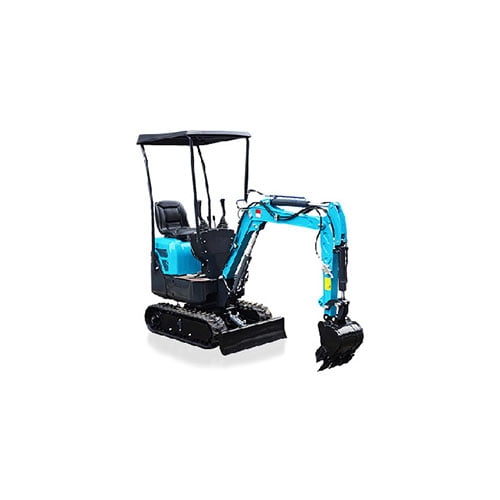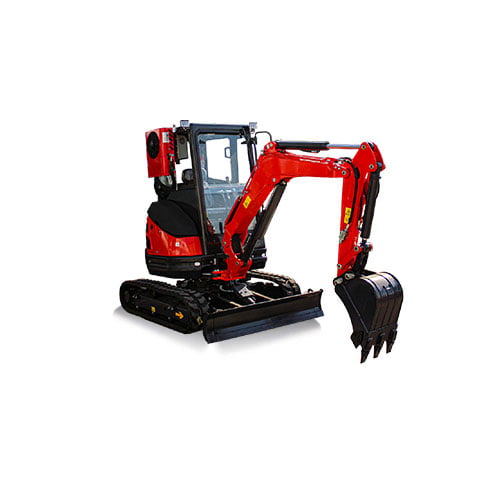Welcome to My Blog!
Before we dive into the content, I’d love for you to join me on my social media platforms where I share more insights, engage with the community, and post updates. Here’s how you can connect with me:
Facebook: https://www.facebook.com/profile.php?id=100072217509763
LinkedIn: https://www.linkedin.com/company/74949059/admin/dashboard/
YouTube:www.youtube.com/@tractormanufacturer-lc5qz,www.youtube.com/@excavatormanufacturers-sn9hk
TikTok: www.tiktok.com/@tractormanufacturer, www.tiktok.com/@excavatormanufacturers
Now, let’s get started on our journey together. I hope you find the content here insightful, engaging, and valuable.
Table of Contents
Introduction

Mini excavators have revolutionized the construction industry by offering a compact and efficient solution for a wide range of tasks. Their small size allows them to access tight spaces that larger equipment cannot reach, making them ideal for landscaping, utility work, and construction projects in urban environments. In this comprehensive guide, we will delve deep into the world of mini excavators, exploring their features, benefits, applications, and much more.
Understanding Mini Excavators
Mini excavators are smaller versions of traditional excavators, designed to deliver maximum performance in confined areas. They come in a variety of sizes, from micro excavators weighing just a few hundred pounds to larger models capable of handling more demanding tasks.
Key Features of Mini Excavators:
- Compact size: Mini excavators are designed to fit into tight spaces, making them ideal for urban and residential projects. Their small footprint allows them to maneuver easily through narrow alleys, backyards, and other confined areas.
- Versatility: A wide range of attachments, such as buckets, breakers, augers, and grapples, can be easily attached to mini excavators, making them versatile tools for a variety of tasks.
- Precise control: Mini excavators offer precise control, allowing operators to perform delicate tasks with ease. Their hydraulic systems provide smooth and responsive operation, enabling operators to work with accuracy and efficiency.
- Cost-effective: Mini excavators are more cost-effective than larger excavators in terms of purchase price, operating costs, and maintenance costs. Their smaller size and lower fuel consumption contribute to significant savings.
- Environmental friendliness: Mini excavators are environmentally friendly, producing lower emissions and noise pollution compared to larger equipment. This makes them ideal for use in environmentally sensitive areas and urban settings.
Benefits of Using Mini Excavators


- Increased productivity: Mini excavators can significantly increase productivity on construction sites. Their compact size and maneuverability allow them to access tight spaces and work efficiently, reducing project timelines.
- Improved safety: The compact size and precise controls of mini excavators make them safer to operate, especially in confined spaces. Operators have better visibility and control, reducing the risk of accidents.
- Reduced environmental impact: Mini excavators have a lower environmental impact due to their reduced emissions and noise pollution. This makes them suitable for use in environmentally sensitive areas and urban settings.
- Versatility: With a wide range of attachments, mini excavators can handle a variety of tasks, from digging and trenching to demolition and material handling. This versatility makes them valuable assets on any construction site.
Applications of Mini Excavators
Mini excavators have a wide range of applications, including:
- Landscaping: Creating ponds, digging trenches, grading land, and planting trees.
- Utility work: Installing underground utilities, such as water and sewer lines, gas pipes, and electrical cables.
- Construction: Excavating foundations, digging trenches, and demolition work on small-scale projects.
- Agriculture: Clearing land, digging post holes, and trenching for irrigation systems.
- Rental and contracting: Providing rental services to contractors and homeowners for various projects.
Choosing the Right Mini Excavator
When selecting a mini excavator, consider the following factors:
- Operating weight: Determine the weight capacity required for your specific tasks. Consider the weight of the attachments and materials you will be handling.
- Digging depth: Ensure the excavator can reach the desired depth for your projects.
- Reach: Consider the maximum reach required for your projects, especially for tasks like digging trenches or loading materials.
- Attachments: Select a machine compatible with the necessary attachments for your applications. Consider the types of tasks you will be performing and the specific attachments required.
- Undercarriage: Choose between rubber tracks or steel tracks, depending on the terrain and working conditions. Rubber tracks are ideal for soft ground and paved surfaces, while steel tracks are better suited for rough terrain and heavy-duty applications.
Mini Excavator Attachments
Mini excavators can be equipped with a variety of attachments to enhance their versatility. Some common attachments include:
- Hydraulic breaker: For breaking up concrete, asphalt, and rocks.
- Auger: For drilling holes for fences, posts, and trees.
- Grapple: For handling materials, such as debris, brush, and logs.
- Thumb: For added control and stability when digging or grading.
- Quick hitch: For quick and easy attachment changes, improving efficiency.
Common Mini Excavator Attachments and Their Uses
| Attachment | Use |
|---|---|
| Hydraulic breaker | Breaking up concrete, asphalt, and rocks |
| Auger | Drilling holes for fences, posts, and trees |
| Grapple | Handling materials, such as debris, brush, and logs |
| Thumb | Providing additional control and stability |
| Quick hitch | Allowing for quick and easy attachment changes |
Maintenance and Safety

Proper maintenance and safety procedures are crucial for prolonging the life of your mini excavator and ensuring operator safety. Regularly inspect the machine for wear and tear, and follow the manufacturer’s recommended maintenance schedule.
Key maintenance tips:
- Regular oil changes: Replace the hydraulic and engine oil regularly to ensure optimal performance.
- Inspect hydraulic hoses: Check for leaks, cracks, and damage to the hydraulic hoses.
- Lubricate moving parts: Lubricate the pins, bushings, and other moving parts to prevent wear and tear.
- Clean the machine: Clean the machine regularly to remove dirt, debris, and other contaminants.
Safety tips:
- Wear appropriate safety gear: Always wear a safety helmet, safety glasses, and sturdy work boots.
- Inspect the work area: Before operating the machine, inspect the work area for hazards, such as underground utilities and unstable ground.
- Follow operating instructions: Read and understand the operator’s manual before operating the machine.
- Be aware of your surroundings: Always be aware of your surroundings, especially when working near people or other equipment.
- Avoid overloading the machine: Do not overload the machine with heavy loads, as this can damage the machine and lead to accidents.
Conclusion
Mini excavators have become indispensable tools in the construction industry, offering a compact, efficient, and versatile solution for a wide range of tasks. By understanding the features, benefits, and applications of mini excavators, you can make an informed decision when selecting the right machine for your project.
FAQ
Q: What is the difference between a mini excavator and a compact excavator?
A: While both are smaller than standard excavators, mini excavators are typically smaller and lighter, often used for residential and landscaping projects. Compact excavators are larger and more powerful, suitable for construction and demolition work.
Q: How do I choose the right size mini excavator for my project?
A: Consider the weight and size of the excavator, its digging depth, and the required attachments. Consult with a rental company or dealer to determine the best fit for your specific needs.
Q: How often should I service my mini excavator?
A: Regular maintenance is crucial. Refer to the manufacturer’s manual for specific recommendations. Generally, you should perform routine checks, oil changes, and filter replacements as needed.




